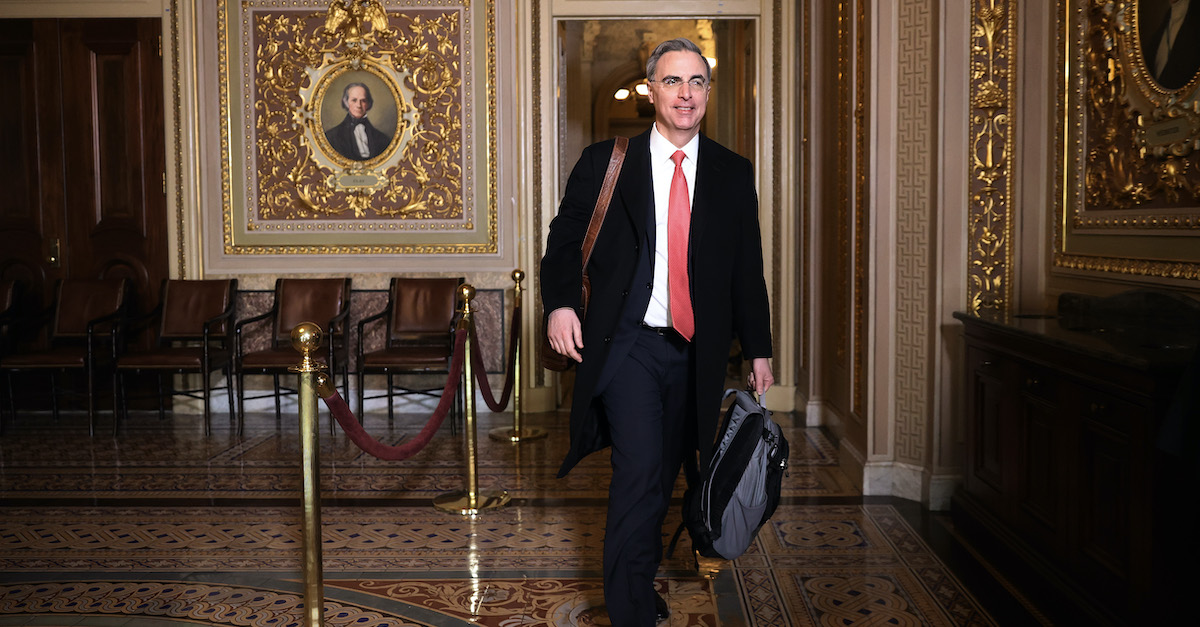
White House counsel Pat Cipollone was a “percipient witness” who has “personal and significant experience with the events that form the basis for the articles of impeachment,” yet he is representing President Donald Trump at the impeachment trial in the Senate. That should not be–even though an impeachment setting is no normal courtroom, a top legal ethics scholar wrote on Monday.
Elihu Root Professor of Law at NYU Stephen Gillers penned a piece for the Just Security blog arguing that the House Managers were right to take issue with Cipollone having a lead role in President Trump’s defense despite being a fact witness to pertinent events. Cipollone was the White House lawyer who was told there were concerns about the July 25 Trump-Volodymyr Zelensky phone call–a call that went on to be described in a whistleblower complaint.
Prof. Gillers, one of the most cited legal ethics scholars in the country, was pretty straightforward: Cipollone shouldn’t be representing Trump, he should be a witness.
The advocate-witness rule tells us that it is more important for a lawyer with first-hand information about the events on trial to testify than to work as an advocate. That will mean that a client will not be able to get the lawyer he wants to represent him in court. But when the client’s interests and the court’s interest clash in this way, the rule says quite clearly that the court wins.
As you will see below, the advocate-witness rule does have exceptions:
Rule 3.7: Lawyer as Witness
(a) A lawyer shall not act as advocate at a trial in which the lawyer is likely to be a necessary witness unless:
(1) the testimony relates to an uncontested issue;
(2) the testimony relates to the nature and value of legal services rendered in the case; or
(3) disqualification of the lawyer would work substantial hardship on the client.
(b) A lawyer may act as advocate in a trial in which another lawyer in the lawyer’s firm is likely to be called as a witness unless precluded from doing so by Rule 1.7 or Rule 1.9.
Gillers said that none of the exceptions apply here.
He also wrote that there’s no way Cipollone would be allowed to be a part of the defense team at a regular trial, and that the same should be true in this case. Here’s why:
From all that appears, Cipollone is what the law calls a percipient witness to the relevant facts. He has personal and significant experience with the events that form the basis for the articles of impeachment. His testimony would not be hearsay. If the impeachment trial were in a courtroom, Cipollone could not head, or even be part of, the defense team. The same should be true in the Senate trial because, at bottom, the senators have taken an oath to perform the same job that we ask of traditional jurors – i.e., decide the facts. To do that job, they need to hear from the witnesses to those facts.
[Image via Chip Somodevilla/Getty Images]
Have a tip we should know? [email protected]